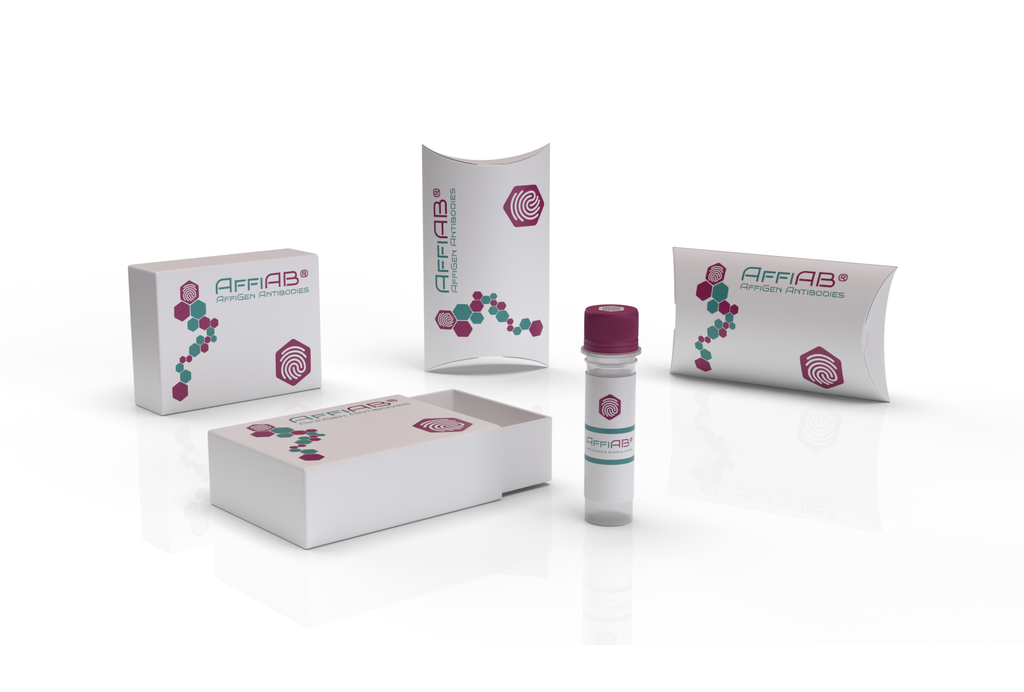AffiAB® Anti-USP21 Antibody
The ubiquitin (Ub) pathway involves three sequential enzymatic steps that facilitate the conjugation of Ub and Ub-like molecules to specific protein substrates. Through the use of a wide range of enzymes that can add or remove ubiquitin, the Ub pathway controls many intracellular processes such as signal transduction, transcriptional activation and cell cycle progression. USP21 (ubiquitin specific peptidase 21) , also known as USP16 or USP23, is a 565 amino acid protein that belongs to the C19 peptidase family of ubiquitin carboxy-terminal hydrolases. Capable of removing ubiquitin from ubiquitinated proteins, USP21 plays a role in signal transduction and can also remove NEDD8 from NEDD8-conjugated proteins, possibly functioning to influence NEDD8-mediated protein proteolysis. Multiple isoforms of USP21 exist due to alternative splicing events.
Antibody type
Rabbit polyclonal Antibody
Uniprot ID
SwissProt: Q9UK80 Human; SwissProt: Q9QZL6 Mouse; SwissProt: B2GUX4 Rat
Recombinant
NO
Conjugation
Non-conjugated
Host
Rabbit
Isotype
IgG
Clone
N/A
KO/KD
N/A
Species reactivity
Human, Rat, Mouse
Tested applications
WB, IF-Cell, IHC-P, FC
Predicted species reactivity
N/A
Immunogen
Synthetic peptide within Human USP21 aa 1-50 / 565.
Storage
Store at +4°C after thawing. Aliquot store at -20°C or -80°C. Avoid repeated freeze / thaw cycles.
Form
Liquid
Storage buffer
1*PBS (pH7.4) , 0.2% BSA, 50% Glycerol. Preservative: 0.05% Sodium Azide.
Concentration
1 mg/mL.
Purity
Immunogen affinity purified.
Signal pathway
N/A
Recommended dilutions
WB: 1:500; IF-Cell: 1:500-1:2, 000; IHC-P: 1:50-1:200; FC: 1:50-1:100
Molecular Weight
63 kDa
Subcellular location
Cytoplasm. Nucleus.
Positive control
Mouse thymus tissue lysate, PC-3M, SH-SY-5Y, human liver cancer tissue, human kidney tissue, human fetal skeletal muscle tissue.
